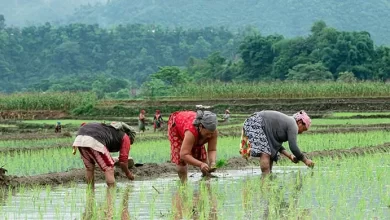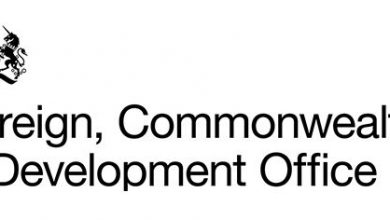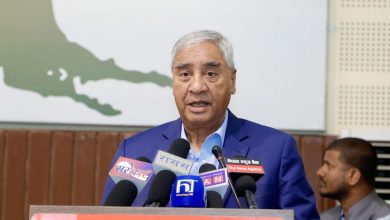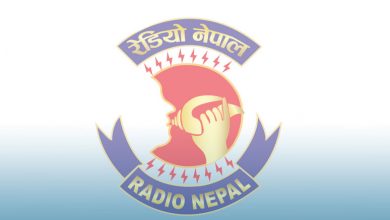Parsa district to provide compensation for crop losses due to drought
Birgunj: The District Disaster Management Committee (DDMC) of Parsa has decided to provide compensation to farmers affected by the ongoing drought, which has severely impacted paddy plantation in the district.
The decision was made during a DDMC meeting held to address the growing crisis caused by water shortages. The committee took eight key decisions focused on farmer compensation, water management, deep boring operations, and drinking water supply.
 The Agricultural Knowledge Center has been tasked with assessing the damage to rice crops across the district. Chief District Officer (CDO) Aryal said the compensation process will begin once the center submits detailed data. The initiative aims to support farmers who were unable to plant crops, lost crops after planting, or suffered other drought-related losses.
The Agricultural Knowledge Center has been tasked with assessing the damage to rice crops across the district. Chief District Officer (CDO) Aryal said the compensation process will begin once the center submits detailed data. The initiative aims to support farmers who were unable to plant crops, lost crops after planting, or suffered other drought-related losses.
CDO Aryal also highlighted that, under the Gandak Canal Agreement, Nepal is supposed to receive 850 cusecs of water from India, but only 600 cusecs are currently available—affecting irrigation in Parsa and Bara. The committee has decided to request the Ministry of Home Affairs to engage with the Indian government to ensure full implementation of the agreement and regular monitoring of water flow from the Gandak Canal.
The meeting also decided to assess the status of deep borings across the district, including the number of beneficiaries and operational conditions. For sustainable management, a consumer committee will be formed in each location, and electric meters will be installed in the committee’s name. Ward chairpersons and the Nepal Electricity Authority will oversee the meter installations and committee formation. Additionally, any new deep boring installation in the district must be approved by the DDMC.
To address drinking water and irrigation problems, a special coordination committee has been formed under the leadership of District Coordination Committee Chief Niranjan Sah Sonar. The committee includes representatives from the Assistant Chief District Officer, Groundwater Resources and Irrigation Development Division, Narayani Irrigation Management Office, Agricultural Knowledge Center, Nepal Electricity Authority, Drinking Water and Sanitation Division, Nepal Drinking Water Corporation, and the Federal Drinking Water and Sewerage Management Project.
The DDMC has also introduced a regulation requiring heads of government offices to seek permission from the district administration before leaving the district during the disaster response period.
A 14-point action plan has been approved, emphasizing coordination among local governments, agencies, and stakeholders.
Speaking to Radio Nepal, DCC Chief Niranjan Sah Sonar said the committee’s decisions are aimed at bringing immediate relief to farmers and residents affected by the drought.








Comments